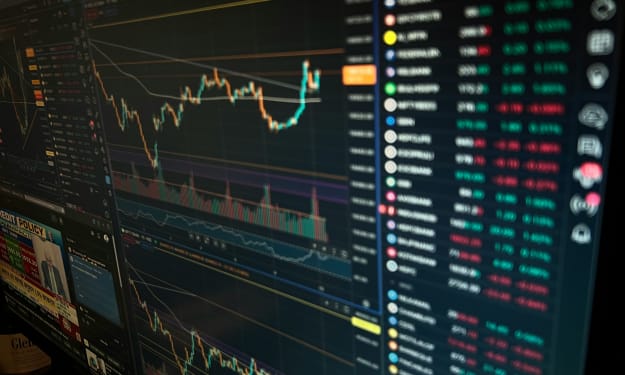The Difference Between Capital Gains and Dividend Income
Not sure if dividends or capital gains are better? Here's what you need to know about the difference between capital gains and dividend income.

Making money in the stock market is never too hard to do—as long as you know what you're doing. There are a multitude of ways you could be earning more money from investing in the stock market.
The two biggest ways people make money while investing in the stock market are through capital gains and dividend income. Each of these incomes has its own perks and pitfalls, and if you want to maximize the benefit of your investment portfolio, you're going to need to know the difference between the two.
If you're not sure which way of making money is better for you, make a point of learning the differences. You might be surprised which will work best for you.
You don't have to make a choice between getting a stock that has capital gains or a stock that has dividends. In most cases, a stock that offers up dividends will also give you capital gains—unless, of course, they've had a bad quarter or two.
Not all stocks offer dividend income, though. So, if you want dividends, you're going to need to work on finding a stock that offers dividends. Simple enough, right? Now, let's get to defining each type of income so that you get a better idea of the differences between the two.
What are capital gains?
Capital gains are the money that you make when you sell a stock that has gained value since you've bought it. These are taxed at a lower income bracket than regular working income and are often cited as the most common way that rich investors make their money.
You do not get capital gains until you sell the stock. When you get them, there is a large lump sum that's paid out to you. These two notes are the biggest differences between capital gains and dividend income.
Why do people want capital gains?
Hm. Large sums of money that are taxed at less than working wage. Who wouldn't want that?
Most investors, if you're curious, won't pay more than 15 percent in capital gains taxes—if even that. It's money that you get in a lump sum, and in some cases, can even been gained quickly.
The big issue is that tax laws require you to keep stocks for at least a year before you can reap better tax rates. Even so, long term investments tend to be a better choice for most, if not all, investors.
Why wouldn't people want to get capital gains?
For the most part, capital gains are a great way to make money. However, they do come with their pitfalls. They are more taxed than other forms of investment income.
It's worth pointing out that not all capital gains occur via a stock sale. Though it's somewhat rare, capital gains can also happen if a company returns money to an investor without them being marked as dividends.
The biggest issue with capital gains tends to be its volatility. Not all stocks will go upwards, and if your stock plunges, you might not be able to recover the money that you put in. This is why it's best to aim for both capital gains and dividend income.
What's dividend income?

Though a lot of people would tell you that corporations don't look out for anyone but themselves, dividends are (somewhat) proof to the opposite. Dividends are small amounts of cash that are given out as a little "thank you" gift to investors.
Capital gains give money in a large lump sum. Dividend income is different. This form of income is all about small sums of money that's spread out over a large period of time. It's not much; usually only 1 to 2 percent of what the stock is worth.
A typical company that offers dividends will pay them out once or twice a year. You have to keep the stock in order to continue receiving dividends.
Why do people want dividend income?
The biggest difference between capital gains and dividend income is the stability of the income. With capital gains, you don't really know whether or not you will be able to sell your stock for a higher profit. Dividend income is stable and guaranteed by the corporation you're investing in.
This makes dividend income one of the best things to rely on during an economic downturn. Dividends can also be reinvested, which can help you make even more money down the road.
Why wouldn't people want dividends?
Honestly, dividends are more or less bonuses for investing and are excellent for profitable long-term investing in the stock market. The biggest issue people have with dividends is that people who have smaller portfolios would not see much of a difference when they get paid dividends.
If you don't have much money invested in the stock market, or if you're just starting out with one of the best micro-investing apps, you probably won't even see as much as $10 from dividend income.
There are definitely marked differences between capital gains and dividend income that are worth pointing out. For example...
- Capital gains tend to be far larger than dividend income.
- Dividend income is taxed as regular income, while capital gains has its own tax rate.
- Capital gains are risky, while dividend income is guaranteed income.
- Not all companies offer dividend income.
- Capital gains may or may not happen, based on the value of the stock.
- Dividends are taxed the same regardless of the time you've held onto the stock. Capital gains get taxed differently on long and short term investments.
The differences between capital gains and dividend income also give you different strengths based on the kind of market you're in.
Capital gains are often best during bull markets, when everything is looking up. Dividend incomes, on the other hand, tend to be better when you have a recession, a bear market, or a crash. The reason why is because of the guaranteed income.
All things considered, choosing both is usually best.

There are companies that offer good stocks, and companies that offer good stock that pays dividends. In many cases, it's better to invest in a company that offers dividends than a company that doesn't.
However, if the potential for capital gains are greater, it's up to you to make the decision to buy up that stock. At the end of the day, you're going to have to be the one to decide which form of income is better for you.
About the Creator
Skunk Uzeki
Skunk Uzeki is an androgynous pothead and a hard partier. When they aren't drinking and causing trouble, they're writing articles about the fun times they have.






Comments
There are no comments for this story
Be the first to respond and start the conversation.